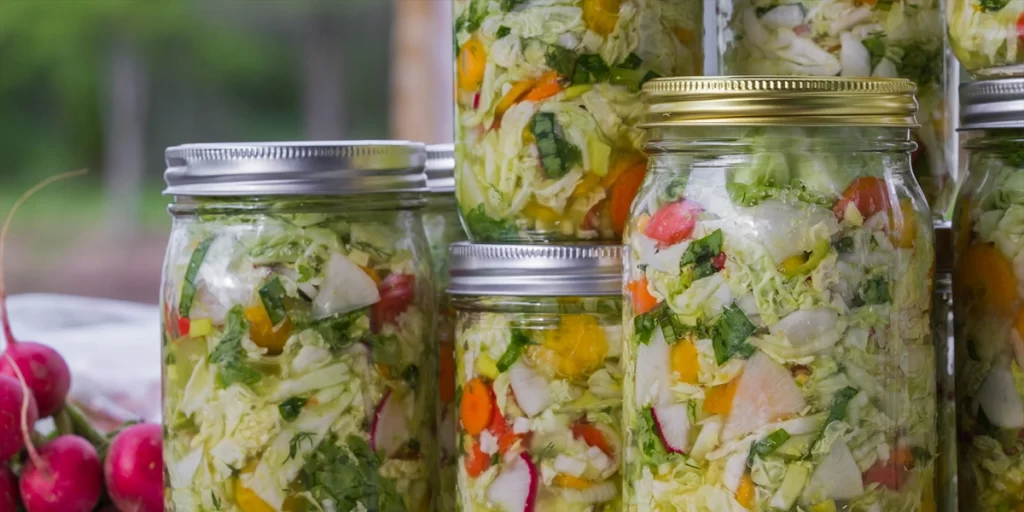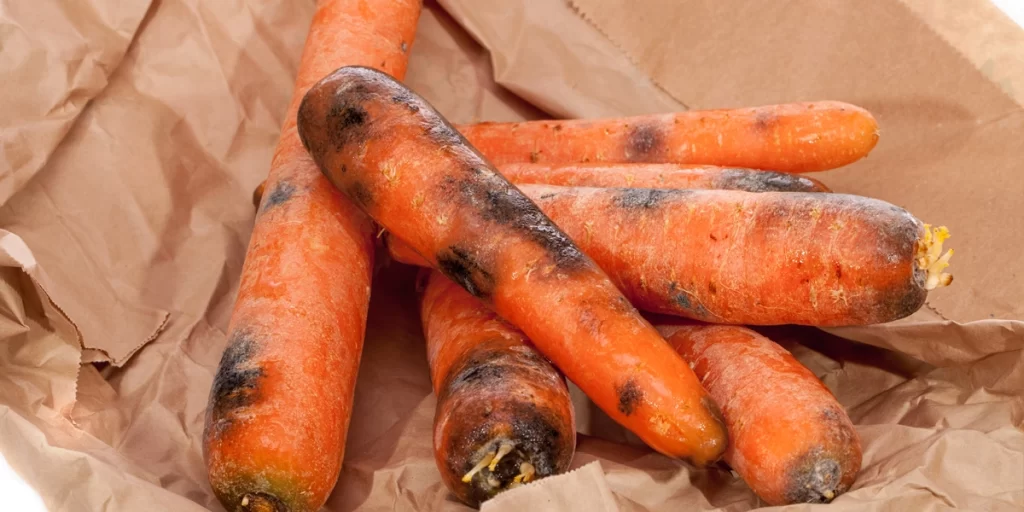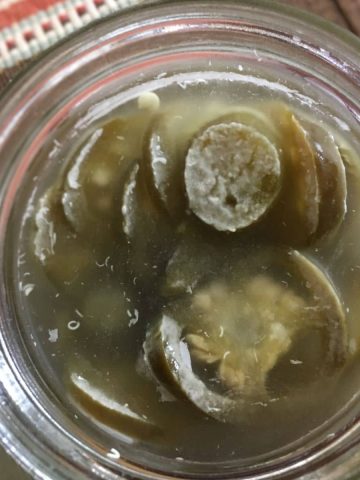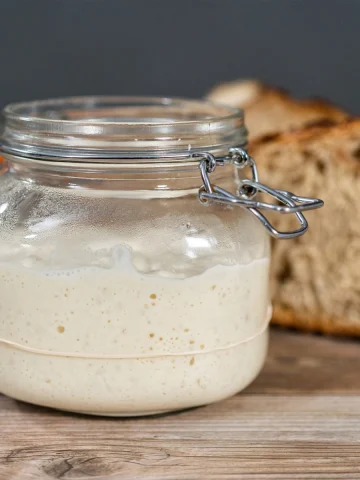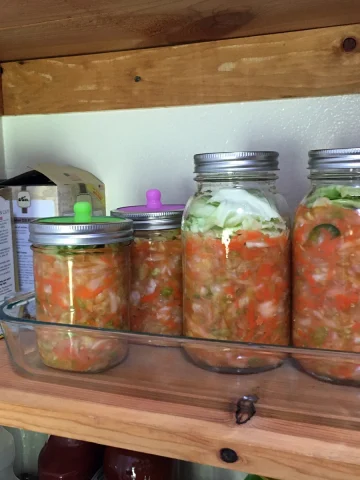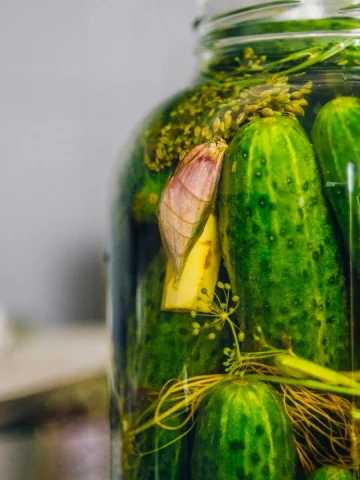Ever wonder what is the difference between fermenting and rotting food?
Short Answer:
Rotting is an uncontrolled act of a food decomposing. Dangerous bacteria take over the food in question, breaking it down to a dangerous and foul state. Rotting kills the food.
Fermenting is just the opposite. Fermentation is a controlled process that creates an environment in which the food is placed (jar, crock…); when done correctly, beneficial bacteria are produced that discourage the growth of harmful bacteria allowing you to eat it well past its usual shelf life.
If you are in the middle of making a batch of fermented vegetables and are wondering if it has spoiled or not, check out my post “How To Tell If Fermented Food Has Gone Bad.“
Is fermented food rotten or spoiled?
No, fermented food is neither rotting nor spoiled food. The process of fermenting food is a method of preservation that raises the population of beneficial bacteria and breaks down the properties of the food so that they remain edible.
How fermentation starts:
- The process starts with the pH lowering, which creates an inhospitable environment for the harmful bacteria.
- They no longer thrive.
- The beneficial bacteria will then outcompete the harmful bacteria.
It’s the survival of the fittest on the microscopic level.
The results are delicious fermented foods such as kimchi, sauerkraut, and so on.
In fact, humans have generally moved away from eating unpasteurized fermented foods, which we have been doing for thousands of years. Studies indicate this has negatively impacted our systems.
Related Topic: Does store-bought sauerkraut have probiotics?
What is Spoiled or Rotting Food?
Food spoilage takes place when microscopic organisms feast on food items that you leave unattended.
Ferment foods are a type of preservation of food that prevents spoilage from happening.
If you don’t take adequate preventative measures, the food will spoil quickly.
The microscopic bacteria are what cause food to spoil. These tiny organisms, called spoilage bacteria, eat unprotected food and produce waste products.
Bacterial waste is the cause of the foul smell and rotten appearance of spoiled food.
Spoiled implies that it is harmful to your health and should not be eaten. Now while there are varying degrees of decomposition that occur, this doesn’t mean you will be harmed from a food that has begun to decompose.
It’s all relative to the process, and humans have developed senses that warn us of harmful things. Think of how you react to a putrefying smell; you start to gag uncontrollably. That is your body protecting itself.
It really just boils down to if the food is harmful to your system or not.
Break it down.
During the fermentation process, microorganisms such as bacteria, yeast or fungi convert organic compounds, such as sugars and starch into alcohol or acids.
For example, starches and sugars (carbohydrates) in vegetables and fruits are converted to lactic acid, and this lactic acid acts as a natural preservative.
The lactic acid is how the food gets its good stuff, the distinctive, intense, slightly sour flavors to common in kimchi, sauerkraut, pickles, beet kvass, and the like.
It’s a balancing act.
The challenge is to balance both the good and bad bacteria.
Humans have both good and bad bacteria living in their guts. The good bacteria are called Probiotics. Probiotics are what line your gut and support nutrient absorption and a healthy immune system.
Eating fermented foods on a daily basis will help you build up the colonies of good bacteria and achieve a healthy gut.
It will help your body digest, absorb, and get better use of the foods you’re eating.
More health benefits of eating fermented foods include:
- Stronger immune system
- Promote repair of damaged tissues
- Improved digestion
- Increased energy from the production of vitamin B12
- Better breath because probiotics destroy candida
- Healthier skin, since probiotics improve eczema and psoriasis
- Reduced cold and flu
- Healing from leaky gut and inflammatory bowel disease
- Weight loss
Probiotics have also been shown to help slow or reverse some diseases, improve bowel health, aid digestion, and improve immunity!
Signs you have too much bad gut bacteria:
- Constipation
- Excess intestinal gas
- Too little or no intestinal gas
- Chronic diarrhea
- Chronic bad breath
To learn more about how to improve your gut health, read the article 9 Ways Good Gut Bacteria Support Your Overall Health, by Dr. David Williams.

